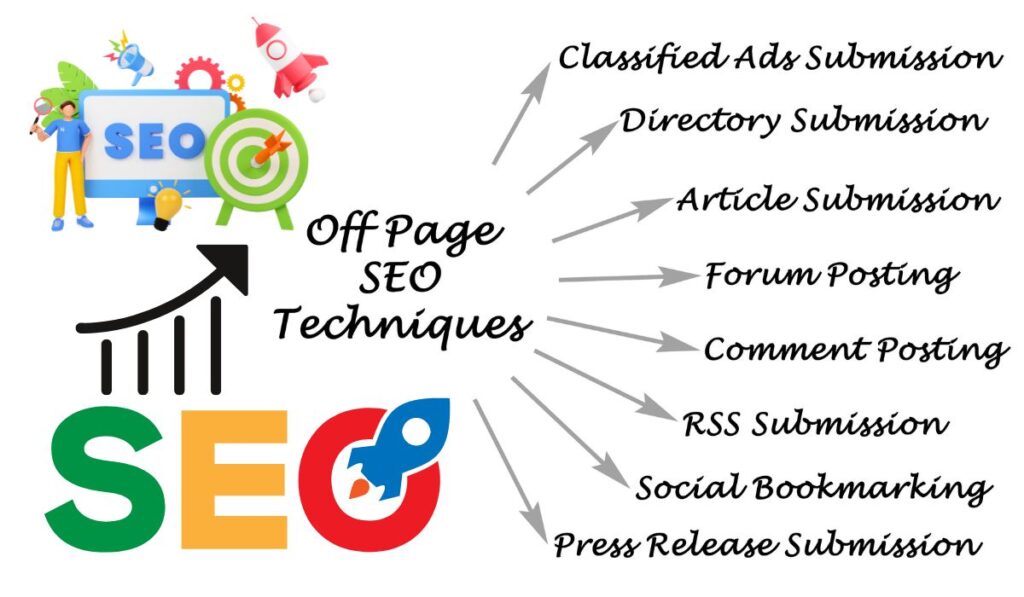Search engine optimization (SEO) is the strategic process that helps increase the quality and quantity of website traffic by improving the visibility of a website to users of a web search engine. It can be divided into two main types: On-Page SEO and Off-Page SEO. While On-Page SEO refers to all the actions taken within your website to improve its position in search rankings, Off-Page SEO involves any activity that drives awareness and referral traffic to your site from other sites, such as backlinks, social signals, and other promotional methods. It is incredibly important because it informs search engines that your website is valuable to others on the web.
Understanding Off-Page SEO
Off-Page SEO, or off-site SEO, includes actions taken outside of your own website to impact your rankings within search engine results pages (SERPs). It involves improving the perception of users and search engines towards the site’s popularity, relevance, trustworthiness, and authority. This is achieved by other reputable places on the internet (pages, sites, people, etc.) linking to or promoting your website and effectively vouching for the quality of your content.
The correlation between Off-Page SEO and a website’s credibility is significant. When a website has high-value backlinks, social media shares, and other external factors, it typically corresponds to higher search rankings and increased organic traffic.
Key Components of an Effective Off-Page SEO Strategy
Backlinks
Backlinks are links from one website to a page on another website. They are significant in Off-Page SEO because search engines use them as indicators of the linked-to content’s quality. There are three types of backlinks: natural links (given without any action from the site owner), manually built links (gained through link-building activities), and self-created links (created by practices such as adding a backlink in an online directory). Building high-quality backlinks can be achieved by writing excellent content, guest posting on reputable sites, and creating compelling infographics.
Social Media Marketing
Social signals such as likes, shares, and comments from social media platforms can influence a site’s SEO rankings. Effective social media strategies for Off-Page SEO include regularly posting engaging, shareable content and interacting with your followers.
Guest Blogging
Guest blogging is the practice of contributing content to another person’s blog in order to build relationships, exposure, authority, and links. It’s an effective way to reach a new audience and boost your SEO. To do it effectively, target blogs relevant to your industry, always provide high-quality, original content, and only include a link back to your site when it adds value to the article.
Brand Mentions
Both linked and unlinked brand mentions can have an impact on your Off-Page SEO. They show that your brand is being talked about, which is a sign of popularity and authority. To increase brand mentions, aim to produce valuable content that people will want to talk about and share with others.
The Role of Content in Off-Page SEO
High-quality, relevant content is crucial in attracting backlinks and social shares. Content that solves problems, offers new information, or entertains tends to encourage more backlinks and shares. Consistently producing fresh content also keeps your site relevant and can improve your SEO.
Advanced Off-Page SEO Techniques
Off-Page SEO techniques extend beyond link building, social media, and guest blogging. Collaborating with influencers, utilizing PR and press releases for backlink generation, actively participating in forums and Q&A sites, and creating shareable infographics and visual content are all excellent advanced Off-Page SEO techniques.
Measuring the Success of Your Off-Page SEO Strategy
To measure the success of your Off-Page SEO strategy, you need to monitor key metrics such as the number of backlinks, social shares, and brand mentions. SEO tools and analytics platforms can help track these metrics. Regularly interpreting this data and making adjustments to your strategy is crucial for long-term success.
Conclusion
In summary, Off-Page SEO is a critical component of your overall SEO strategy. It helps improve your website’s visibility and authority, leading to higher search rankings and more organic traffic. With the guide above, you now have a solid foundation to assess and improve your Off-Page SEO strategy. So, get out there and start building those relationships and links!
We encourage you to comment, share, or engage with our post if you found it helpful or insightful. And remember, SEO, including Off-Page SEO, is a dynamic and ever-evolving field. What works today may not work tomorrow due to changes in search algorithms and user behavior. Thus, staying updated with the latest trends and updates is critical. Happy optimizing!

